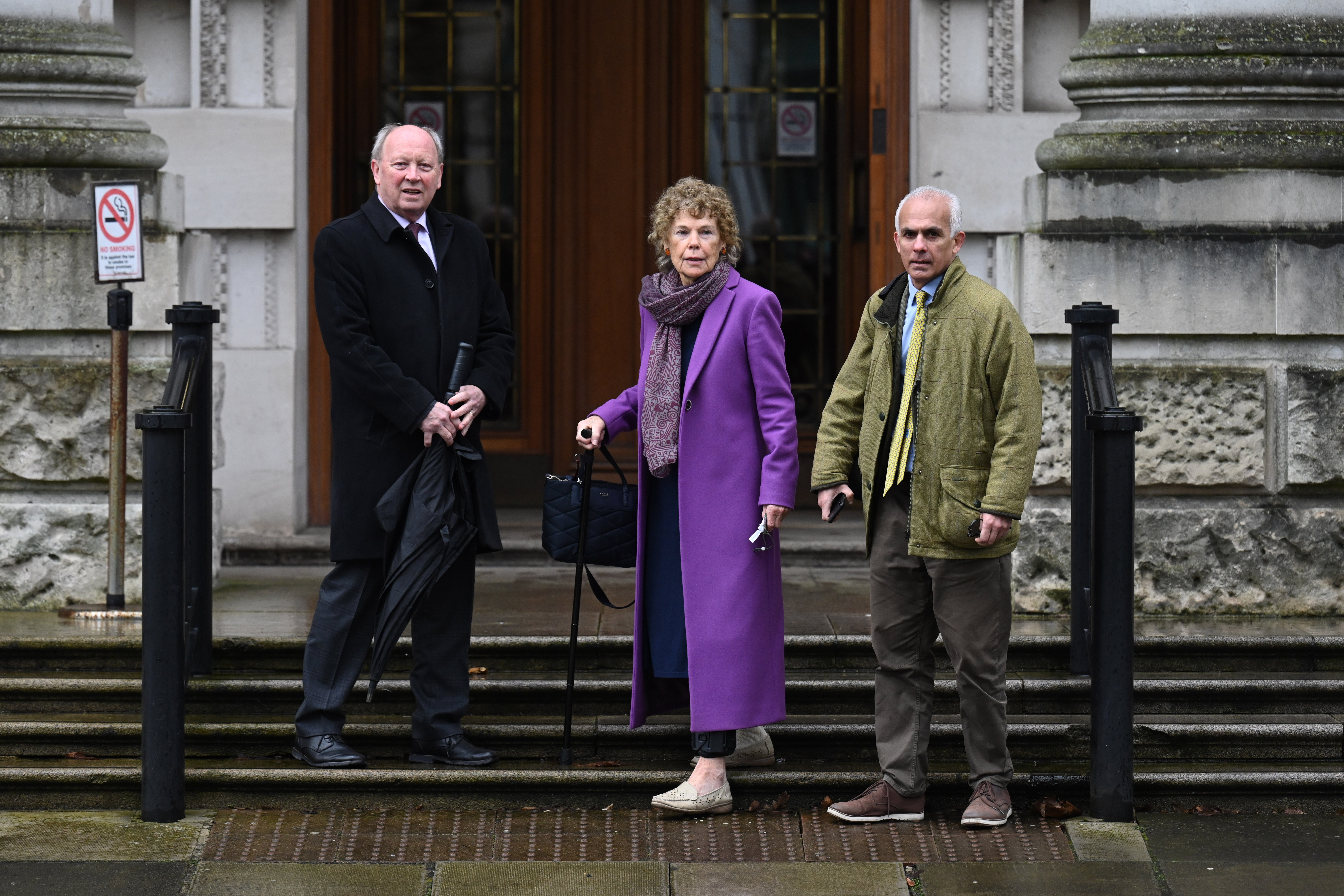‘Unlawful Protocol’ dismissal ruling upheld by appeal court
The case was pursued in the names of unionists and Brexiteers from across the UK

Your support helps us to tell the story
From reproductive rights to climate change to Big Tech, The Independent is on the ground when the story is developing. Whether it's investigating the financials of Elon Musk's pro-Trump PAC or producing our latest documentary, 'The A Word', which shines a light on the American women fighting for reproductive rights, we know how important it is to parse out the facts from the messaging.
At such a critical moment in US history, we need reporters on the ground. Your donation allows us to keep sending journalists to speak to both sides of the story.
The Independent is trusted by Americans across the entire political spectrum. And unlike many other quality news outlets, we choose not to lock Americans out of our reporting and analysis with paywalls. We believe quality journalism should be available to everyone, paid for by those who can afford it.
Your support makes all the difference.Appeals to a ruling against legal challenges to the lawfulness of Brexit’s Northern Ireland Protocol have been dismissed.
The Court of Appeal in Belfast heard appeals to the ruling last June by Mr Justice Colton rejecting arguments that the contentious post-Brexit trading arrangements breached the terms of the 1800 Acts of Union and the 1998 legislation that underpins the Good Friday Peace Agreement.
The action was pursued in the names of unionists and Brexiteers from across the UK, including former DUP leader Arlene Foster, former UUP leader Steve Aiken, TUV leader Jim Allister, Belfast Agreement architect Lord Trimble, former Brexit Party MEP Ben Habib and Baroness Hoey.
An adjoined case was taken by Belfast pastor Clifford Peeples.
Appeals in both cases were dismissed.
Lady Justice Keegan said the senior judges determined none of the legal arguments prevail, and accordingly the appeals are dismissed and the decision of the trial judge affirmed.
An attempt to take the case to the Supreme Court is expected.
Addressing the Court of Appeal on Monday, Lady Justice Keegan said the judicial review applications were out of time, but an extension was granted because “they raise issues of constitutional importance”.
“It is in the public interest that these issues be considered and determined by the highest court in this devolved administration,” she said.
She said the European Union Withdrawal Act, which includes the protocol, the Acts of Union and the Northern Ireland Act are all of a constitutional character, adding the issue is the interplay between them and how they should be interpreted.
In the ruling, senior judges ruled that while the Withdrawal Act conflicted with the Acts of Union, Parliament knew the legislation involved and acted lawfully in enacting the latter.
They also found that the Northern Ireland Act 1998 “has no impact on the legality of the changes enacted by the Withdrawal Agreement”.
In terms of the argument of a democratic deficit being caused by European laws that the people of Northern Ireland had no say in being imposed on them, the judges held that the justification for differential treatment “fell within the choices made in a ‘highly visible, political process’, and rejected this ground of appeal.
Meanwhile, no merit was found in any of the additional arguments raised by Mr Peeples.
SDLP MLA Matthew O’Toole responded to the ruling by urging unionist politicians to focus on the cost of living crisis.
“With families struggling to heat their homes and the continent of Europe facing humanitarian catastrophe, the sight of politicians fixating on the protocol would be absurd, if its wasn’t so irresponsible,” he said.
“Where there are issues on GB-NI trade that require smoothing, the solution is through discussion and engagement – rather than collapsing political institutions and mounting quixotic legal challenges.”